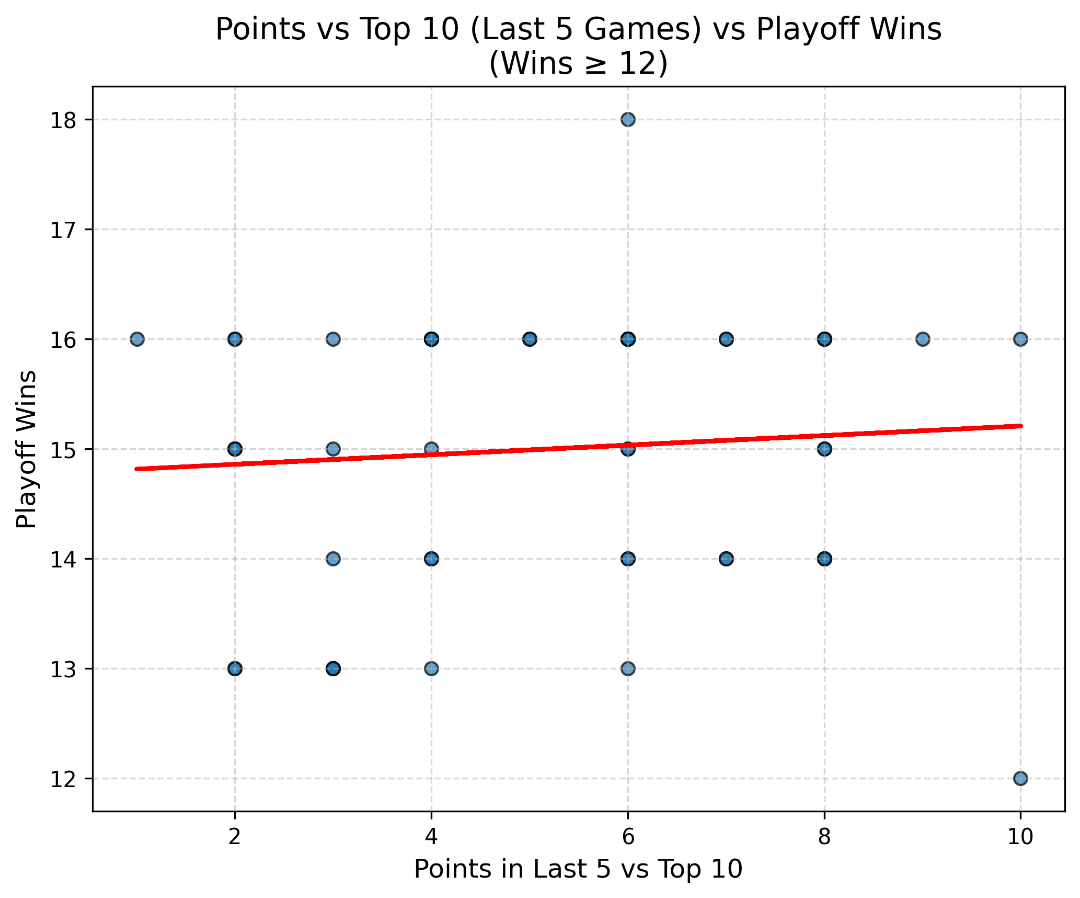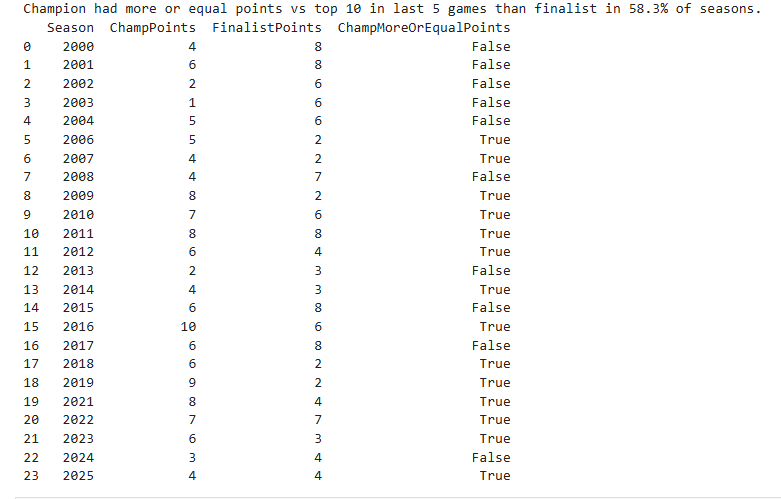The Momentum Myth: Beating Top-10 Teams Late Doesn’t Predict the Cup
Growing up, my dad always told me to watch out for the NFL teams with the best record in their last few games, since they are usually the ones to do the best in the playoffs. The St. Louis Blues’ Stanley Cup run in 2019 is an example in support of this theory, since they infamously were tied for last place on January 1 before going on a remarkable run to make the playoffs and eventually claiming their first franchise championship.
Additionally, I recently read an article describing how a player’s “bad luck” in the playoffs resembles a common phenomenon in poker, where playing more difficult competition leads to longer “downswings” in production.
This got me thinking: can we predict how a team will perform in the playoffs based on how well they do against top competitors toward the end of the season?
To test this theory, I scraped NHL standings and game-log data from Hockey-Reference using Python, covering the 1999-20 through the ’24-25 seasons. I created a list of the top-10 teams (standing point-wise) for each season. I then created another list of all the playoff teams from each season, along with their total playoff wins. From there, I identified each playoff team’s last five games (against top-10 competitors) from each season and calculated total standing points from each game. I then calculated the correlation between a playoff team’s last five games (vs top-10 competitors) and the team’s total playoff wins from every season since 2000. The results were… surprising to say the least.
The numbers show there was only a positive 0.066 correlation between each playoff team’s last five games (vs top-10 competitors) and that team’s total playoff wins. This means there is only a very weak or negligible correlation at best.
Okay, well, what about teams that make the cup final? Surely they must’ve been really good vs top competition heading into the playoffs, right?
Well, this data carries only a 0.069 correlation (nice), which still means that there is a very weak correlation. Also, you’re probably noticing that a team won the Stanley Cup with 18 wins. That puzzled me at first, too, until I remembered the Tampa Bay Lightning won in 2020 with the 24-team playoff.
Just for fun, here’s a graph of Stanley Cup champions and their standings points gained in their last five games vs top-10 competition:
Now lets look at Stanley Cup runner-ups and their standings points gained in their last five games vs top-10 competition:
Generally speaking, it is slightly more common for Stanley Cup champions to perform reasonably well against top competitors leading up to the playoffs compared to Stanley Cup runner-ups. Especially in the past 10 seasons, only two teams have failed to register at least six standing points in their last five regular-season games. Those teams? The back-to-back Stanley Cup champion Florida Panthers. Meanwhile, only three Stanley Cup runner-ups have gone on to register at least six points in their last five regular-season games vs top-10 competition. Is it interesting? Definitely. Am I convinced that looking at how a team is playing against top competition toward the end of the season is a reliable way to predict the cup winner? Not really.
The predictive power of comparing standing points vs top competition leading up to the playoffs is not much better an indicator of who will win than a simple coin flip.
We can then conclude that no, you cannot reliably predict who the Stanley Cup champion will be based on how well the team is playing against quality competition leading up to the playoffs. Maybe my dad’s rule works for the NFL. For hockey? Not so much. The playoffs are chaos, and that’s why we love them.






